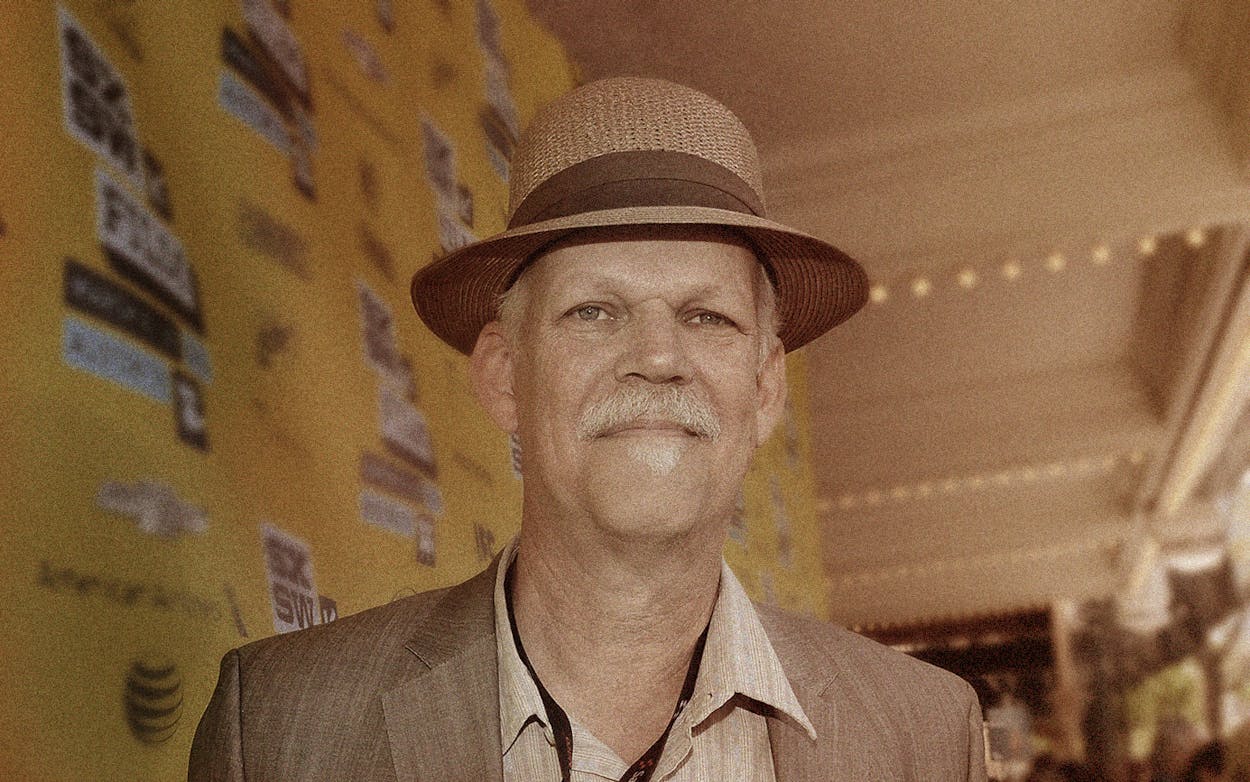For Texas Monthly’s instantly collectible December 2012 issue, Willie Nelson appeared on the cover dressed as Santa Claus—the role he ostensibly plays in the 2013 holiday film Angels Sing. The movie, which also starred Harry Connick Jr., Lyle Lovett, Kris Kristofferson, and Connie Britton, was based on When Angels Sing, a book from Austin author, actor, and philanthropist Turk Pipkin.
Subscribe
“It’s Christmas miracle fiction, and the miracle is love,” says Pipkin, who co-authored Nelson’s The Tao of Willie and recently released a sequel to When Angels Sing, A Christmas Song. “I think every book I’ve written—both fiction and nonfiction—has love at its heart.”
Pipkin says that love is also at the heart of The Nobelity Project, a global education nonprofit he founded in 2005 with his wife Christy Pipkin. The Austin-based organization grew out of the feature documentary Nobelity, which asked Nobel Prize winners about global problems and solutions, and it now maintains partnerships with communities in Kenya, Honduras, and the U.S. that serve more than 15,000 students annually.
On the podcast, Pipkin—who’s had recurring roles in both The Sopranos and The Leftovers (as the iconic Pillar Man)—talks about the crossroads of Christmas homelessness, philanthropy in our divided times, and the future of Texas’ film community.
Three takeaways from our conversation:
1. Over the years, Nobelity Project’s work in East Africa has consistently focused on construction of new classrooms and libraries, the installation of clean water systems, and jump-starting college sponsorship programs. Pipkin says the need for the programs is as dire as ever, but that he’s also more hopeful about Africa than he’s ever been.
“People who hear about how often we’re there ask, do we feel like it’s dangerous? And I feel safer there than I do in a lot of cities in America. And the progress is just so dramatic over there. It’s just incredible. In downtown Nairobi they’re putting up towers everywhere and a lot of the slums are getting torn down for residential units that probably wouldn’t be up to American living standards, but have flush toilets, running water, and electricity. And job and economic growth is big. There’s a lot of really great things happening in the developing world, yet we still always tend to think that good things only happen here. So there’s a lot of reason for optimism.”
2. Pipkin believes it’s not our divided times, but the new tax code, that’s been the top challenge for small-dollar nonprofit fundraising.
“In simplifying the tax code, they’ve essentially taken away the deduction for charitable contributions for 90% of Americans. The people who used to say, ‘ I’m going to put a hundred dollars into this charity and and write it off on my taxes because I think they’ll do a better job with the money than Uncle Sam,’ aren’t as likely to be able to that. Every time they simplify the tax code, they make it more complicated for non-profits.”
3. Pipkin says that if it weren’t for the Texas Moving Image Industry Incentive Program—the state’s economic support vehicle for the film, TV, commercial, and gaming industries—his acting resume would be far lighter. The bulk of the acting jobs he’s done—including The Alamo, Friday Night Lights, and Rick Linklater’s A Scanner Darkly—came with the help of the program, which is now funded at only half of what it was five years ago.
“Most of the films that were getting made with incentives were not shot in Austin. They were shot in West Texas and Dallas, in the Panhandle, etc. But the legislature doesn’t have a great relationship with Austin. And we somehow seem to them to be synonymous with the film scene, even though it’s a statewide thing. And if you’re trying to appeal to rural conservative voters and you can say, ‘I’m not giving your money to Hollywood,’ that’s appealing. But it’s not the balanced argument. The fact is, you’re not giving the money to Hollywood, what you’re doing is you’re giving money to people in Texas who need jobs. Most people are from Texas, including the actors. Ninety-eight percent of the people working on a movie are from where the movie is [shot], and everybody else who’s here, even their stars who are coming in from somewhere else, are in town and they’re spending money. It’s shortsighted of the legislature not to value the incentive program more than they do.”






